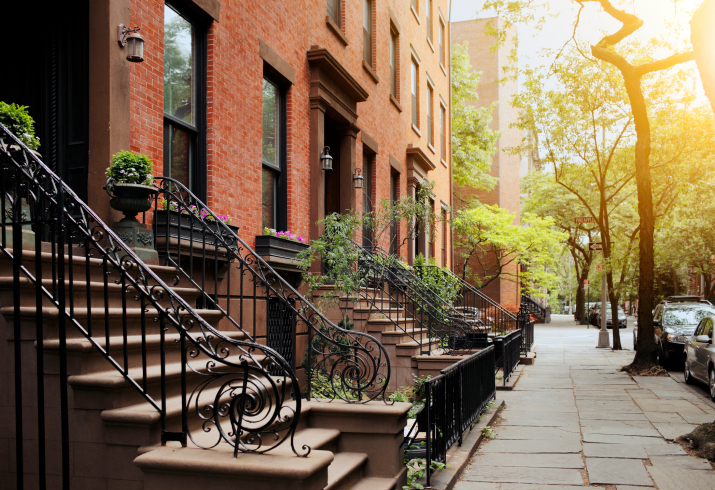Three Excellent Reasons to Buy a Home So You Can Get out of the “Renting Rut”
 Renting a home is a good option for some, but buying a home just might be the best thing for you. When you rent a home, you send money to someone else every month in exchange for knowing that you can call on your landlord when the roof leaks, an appliance stops working or your bathroom faucet breaks.
Renting a home is a good option for some, but buying a home just might be the best thing for you. When you rent a home, you send money to someone else every month in exchange for knowing that you can call on your landlord when the roof leaks, an appliance stops working or your bathroom faucet breaks.
There are some big advantages to buying a house that will help you get out of your renting rut and focus more on your future.
Build Equity
Did you know that when you rent a home, you help someone else build equity? Any changes that you make with your landlord’s approval puts money back in his or her pocket. Keeping the yard clean and taking care of routine maintenance builds equity in that property. When you buy a home of your own, you have the chance to build equity of your own, which you can use to obtain a loan later.
Save On Your Taxes
When you rent a house, you cannot deduct the money you spend on your taxes. Though some states will let you make a small deduction based on the total amount you spend in rent each month, you cannot make any deductions on your federal taxes. When you buy a home, you can save with a few different types of deductions.
The federal government lets you make a deduction if your home is worth more than what you currently owe on your taxes. If you purchased your first home, you can make a deduction in regards to your property taxes. You can also deduct money that you spend on some renovations and energy saving appliances.
Put Your Personal Touch On Things
As long as you continue renting, you live in a home that belongs to someone else. Your landlord has final say over what you do and do not do. This often means that you cannot make repairs or significant changes without seeking approval first.
Renting a home lets you put your personal touch on things. You can paint the walls any colors you want, rip out the carpet to add hardwood flooring or even make significant changes outside to turn your new home into your dream home.
Now that you know more about the benefits of buying a home and how that purchase can get you out of the rental rut you’re in currently, turn to a mortgage professional for assistance.
 Finding the perfect property is an exciting feeling, but its relative location can leave a lot of room for worry. Buying a home in the city is a venture that comes with an entire assortment of advantages and disadvantages. While the location might be close in proximity to businesses, services, and other people, it’s easy to worry about the other aspects of city living. What are the great and not-so-great facets of living on a busy street?
Finding the perfect property is an exciting feeling, but its relative location can leave a lot of room for worry. Buying a home in the city is a venture that comes with an entire assortment of advantages and disadvantages. While the location might be close in proximity to businesses, services, and other people, it’s easy to worry about the other aspects of city living. What are the great and not-so-great facets of living on a busy street? If you’re entering the real estate investment market for the first time, you’re embarking on a great adventure – and with a solid plan, you can turn a tidy profit on your investment.
If you’re entering the real estate investment market for the first time, you’re embarking on a great adventure – and with a solid plan, you can turn a tidy profit on your investment.